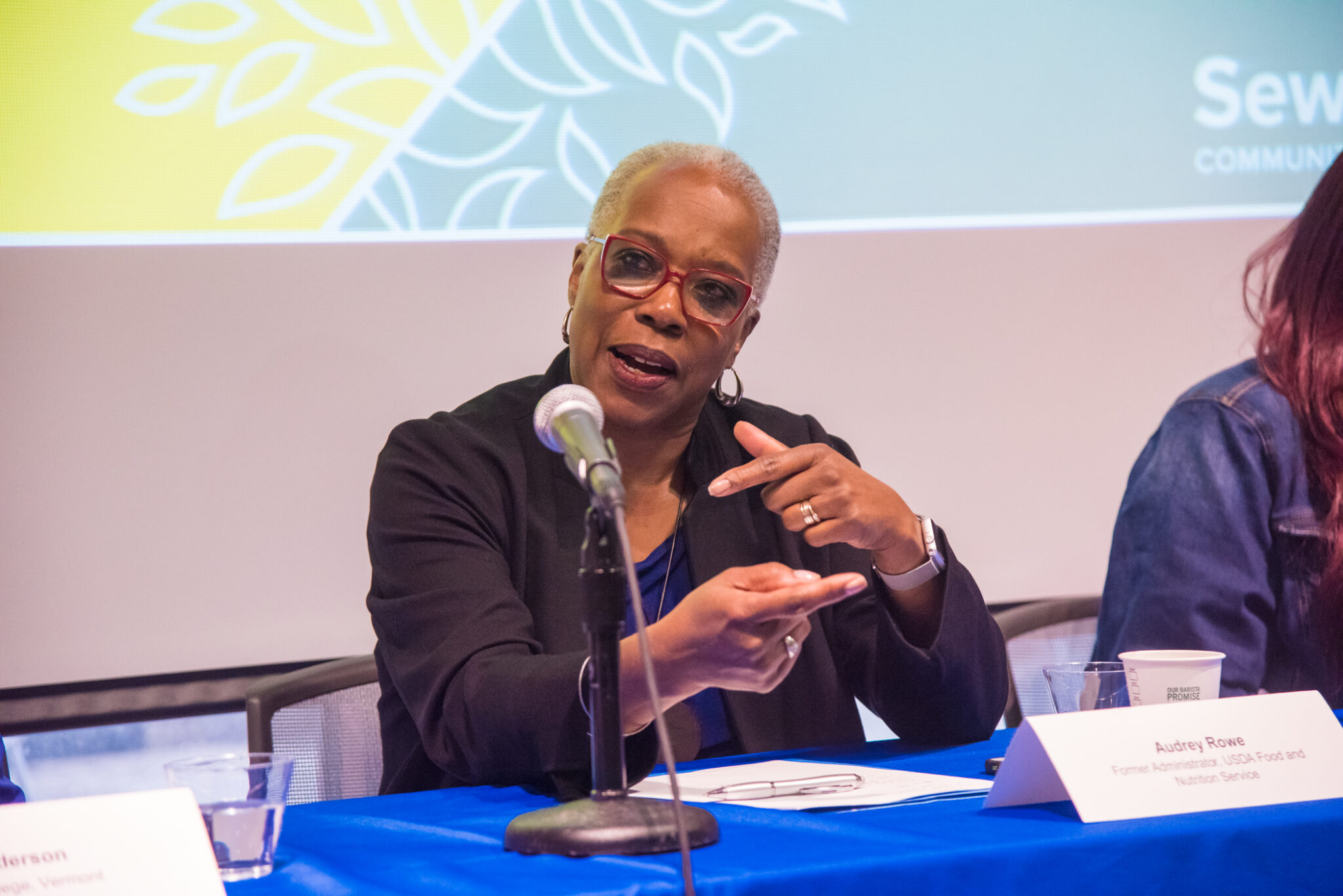From the Field
Root to Rise: The Growing need of Community-Driven Solutions
Federal nutrition programs like SNAP and WIC can do better to address the needs of the populations they serve, but not without a greater understanding of the communities they intend to serve.

Kristal is a first year MPH Nutrition student at UC Berkeley’s School of Public Health. She joined the Berkeley Food Institute in Washington, DC for the Farm Bill symposium BFI co-hosted with American University. Below are her reflections on the compelling discussion that took place during a panel dedicated to Title IV of the Farm Bill: Nutrition.
Federal Nutrition Programs
Many of us arrived to the Farm Bill Symposium with the same question: can federal nutrition programs like SNAP, SNAP-Ed, and WIC do even better to address the needs of the populations they serve? The answer: yes, but not without a greater understanding of the communities they intend to serve.
The need for community-based research, programming, and advocacy is needed today now more than ever. This message was clear, ringing loudly through several panels throughout the day to the dozens of us students seeking to change the food system.
“It’s amazing what we make people go through just so they can eat,” said La Donna Redmond, of Steward Community Coop in Minneapolis.
One of the panelists on the nutrition panel, LaDonna was referring to the long, bureaucratic, and all-too-often deterring process involved with enrolling for SNAP benefits. SNAP, or the Supplemental Nutrition Assistance Program, serves as the Federal government’s largest nutrition safety-net program, operating a $75 billion a year budget, and serving nearly 50 million low-income Americans.
Many times, hungry families-in-need fall through the cracks as they seek to apply for SNAP benefits, caused by factors such as low-literacy levels, geographic location (at times, rural families live very far from their local benefits office), time, or simply a greater need for faster emergency benefits.
“Eligibility processes need to exist right where people reside,” said Audrey Rowe, former USDA Food and Nutrition Service Administrator.
After years of working on SNAP, Audrey saw these issues arise frequently, and shared her advice with the attendees of the conference. “We need to listen to our stakeholders first” —stakeholders in this case meaning program participants and beneficiaries.
Increased Community Involvement
One idea for involving the community in anti-hunger solutions came from LaDonna Redmond. After seeing a need for healthier, more appropriate food options in her community, LaDonna decided to take matters into her own hands. She gathered her community together, collected input, and founded a community food-coop focused on diversity, cultural competency, and most importantly, health.
To us aspiring researchers, policy makers, and leaders, the nutrition panel ended on an inspiring note from Audrey and LaDonna: “This is where advocacy comes in. Get participants and bring them to the legislature—it can change their minds… We are the ones we’ve been waiting for!”